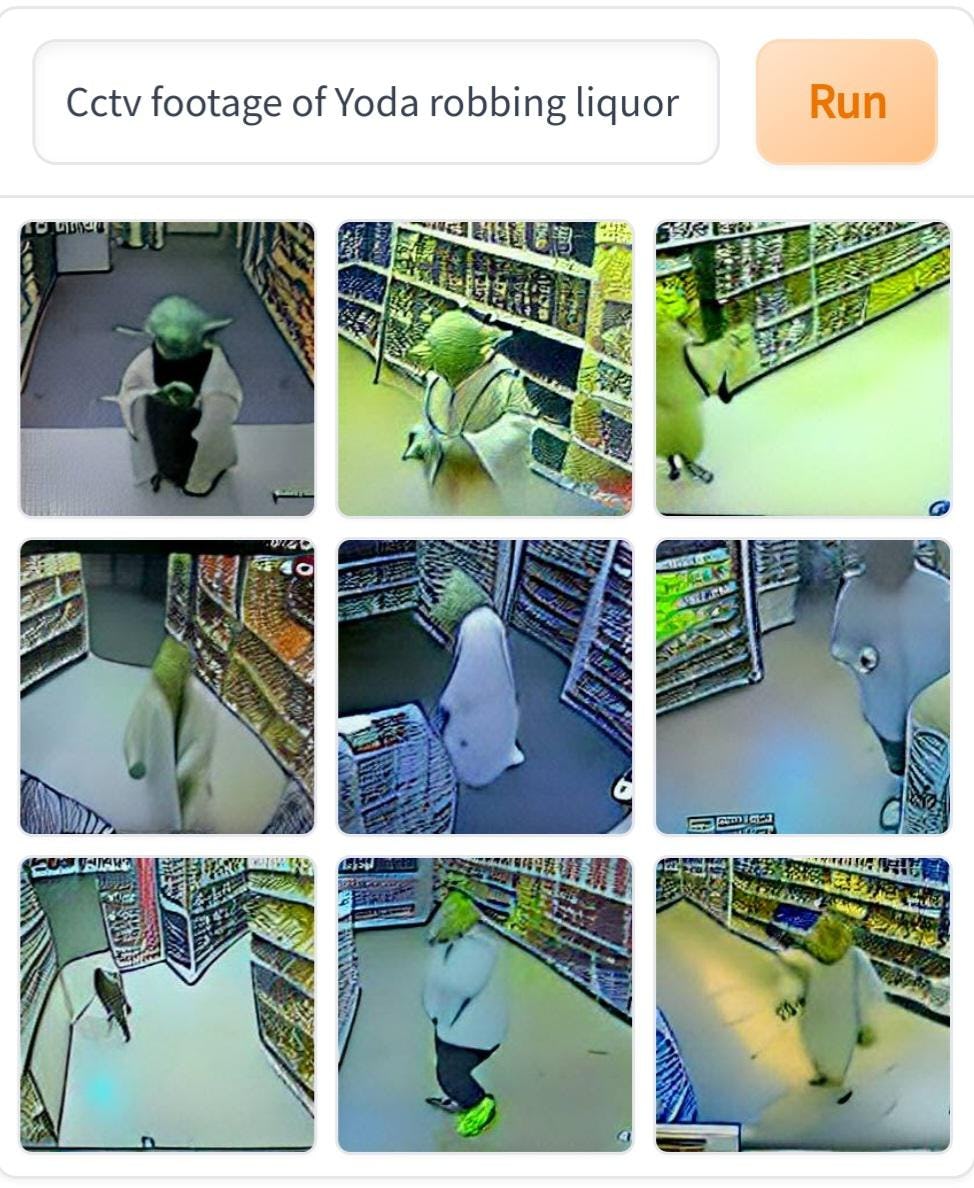Community, Leadership, Experimentation, Diversity, & Education
Pittsburgh Arts, Regional Theatre, New Work, Producing, Copyright, Labor Unions,
New Products, Coping Skills, J-O-Bs...
Theatre industry news, University & School of Drama Announcements, plus occasional course support for
Carnegie Mellon School of Drama Faculty, Staff, Students, and Alumni.
CMU School of Drama
Friday, November 11, 2022
How the author of DALL-E Mini created the ultimate meme maker — and a new era for AI
www.inverse.com: Thanks in part to DALL-E Mini (now known as Craiyon), suddenly, both programmers and regular Joes could turn a brief text prompt into a detailed image out of thin air. Social media buzzed over nine-panel collages of gamer toilets, Yoda robbing a liquor store, and mushroom clouds in the style of Monet.
Subscribe to:
Post Comments (Atom)

5 comments:
I'm calling it now. This AI image generating technology is someday going to be used to create one-oof, hyper specialized advertisements catered towards the viewer. Just imagine, you are scrolling a website and suddenly you see an ad for a new dewalt tool under stage lighting being held by literally you or an individual that looks somewhat like you. Platforms like instagram are already able to show very specifically targeted advertisements to you based on information collected from one of the many internet capable devices in your life. It isn't too much of a stretch to think that, when the processing time for the generation of these images goes down, they could be generated in real-time and be specifically catered to the person that is going to view them. I know that this has very little to do with the articles that we normally see. But I can't helped but be fascinated by the tech and the implications thereof.
It’s wild to me that even the creator of this AI program wasn’t aware of the extent of its capabilities. Dare I say, a bit frightening. But I suppose that’s the whole point of creating a program that has enough knowledge to generate its own content. Granted, I have only seen the results of this program in the form of memes. And yes, they really are very funny. But besides being another way to get people to spend more time on the internet and see some ads, I’m not sure of the rest of its purpose, and how it creates the dangerous potential for deepfakes to be developed. I’m probably not seeing the full range of possibilities, but I feel like it will likely just serve as another marketing tool that attempts to sell social media users products on the internet as they do their daily browsing. I will admit, it's still cool though.
I have seen some TikToks and Instagram memes using this AI, and it is so impressive that it can create such realistic images. I also love the format of having so many options per se that it makes it seem even more like this is a "right version" that was not computer generated. It reminds me of what "How I Met Your Mother" calls the Cheerleader effect. In the past, I have paid for and used other AI software, and I wonder if those would be as funny for meme generation. I would love to see a psychological study all about every facet of different AIs. I also love the way that Gen Z will find anything that can be even slightly funny and spread it like no tomorrow. My dad has shown me memes from a word-based AI, and I think finding the faults in AI, as well as giving funny prompts to the AI has become a partner for comedy perfectly.
I’ve only seen a couple of memes made via AI so this article was really interesting to read. It seems like every week we get an article with some other angle on how artificial intelligence is contributing to pop culture at the moment. It is technology that is so rapidly advancing that it makes sense that there are so many articles as the technology is tested out in different ways - in this case to contribute to the ever growing canon of memes the internet has created over the years. As B mentioned, the popularity of DALL-E for memes is probably linked to how our generation can find literally anything funny - and how the images being slightly messed up or uncanny in some way contributes to the humor of it. Much like other parts of the internet, DALL-E and other AI image generators being free and relatively easy to access is an important part of their popularity and growth and I think that that accessibility is a really interesting mark of this technological movement. I am curious to see how both the tool itself evolves in the future and how regulation of the tool evolves.
I remember the first time I ever saw images created using Dall-e mini because my instagram stories were flooded with people showing off their strange creations. I saw celebrities stranded in the woods, politicians in hell, and much more. Honestly, I didn’t think it was real at first because some of the images just looked way too good, especially with the prompts. I couldn’t imagine that those could be created in seconds. When I first tried it out one of my first problems was coming up with something to see because now there was no limit. There are too many options when you can practically see everything. While it’s super fun and I sent one too many to my friends, it does sort of scare me with where we are going with AI content. Does this have the possibility to get rid of some people’s jobs or replace artists? I also have questions about who has copyright over the images created.
Post a Comment